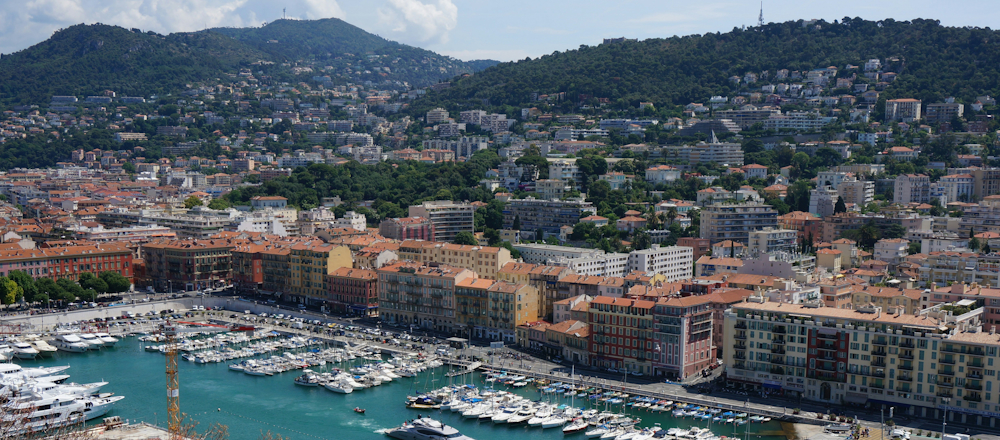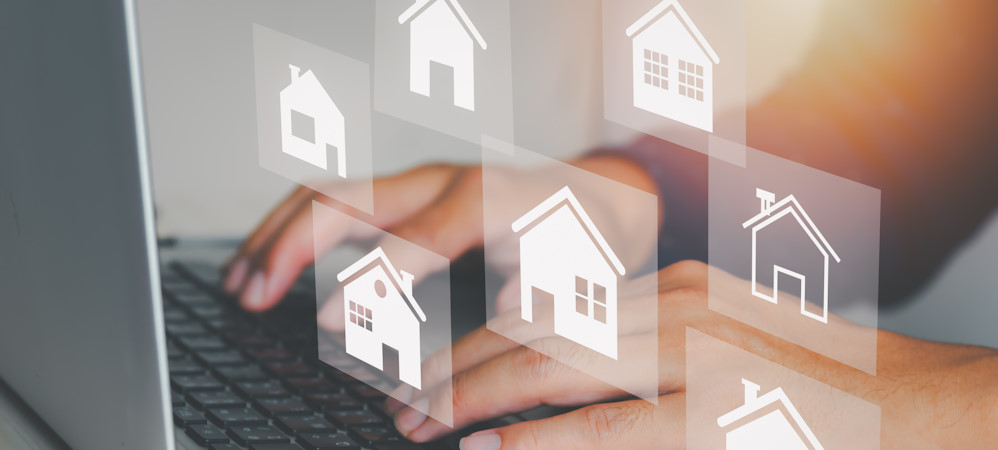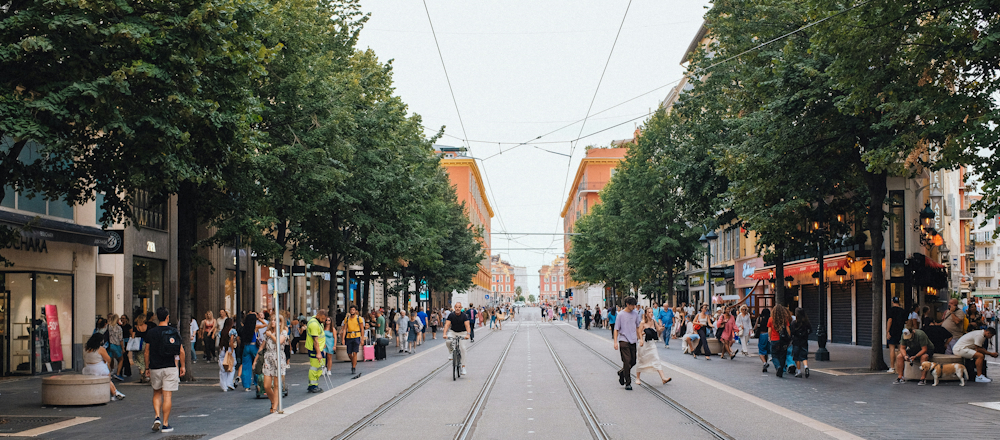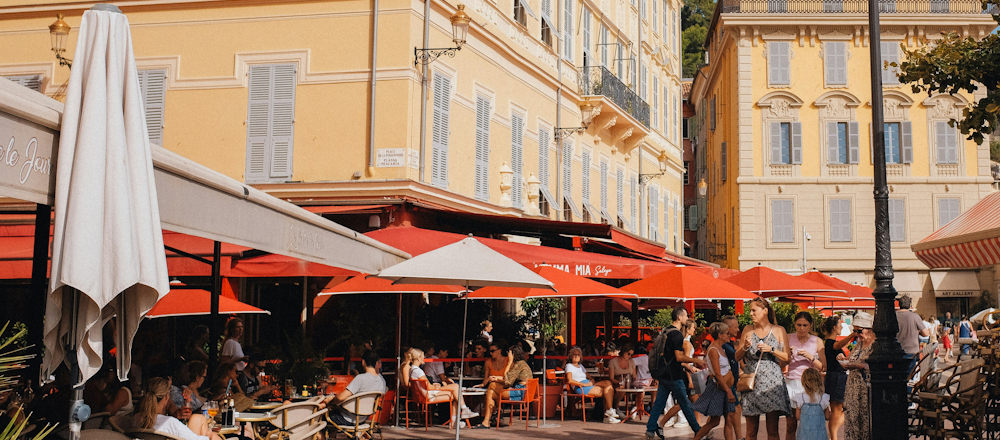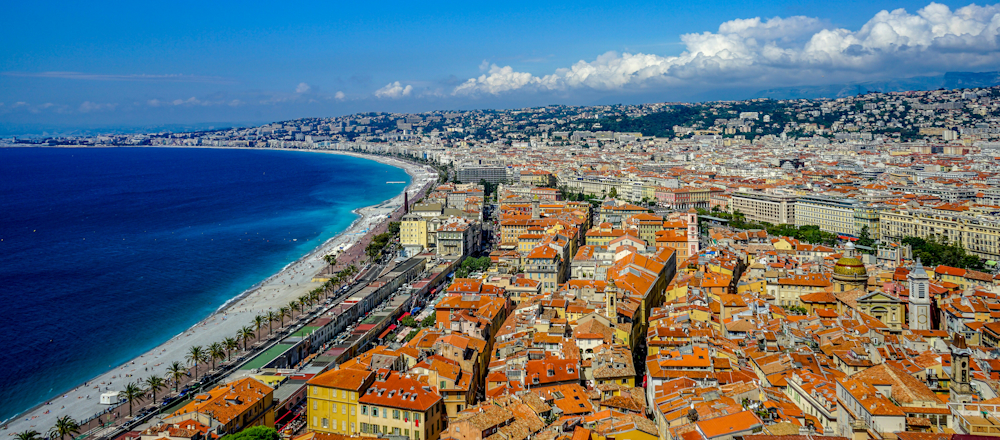Moving to Nice puts you in the ideal location in the centre of the French Riviera, between Cannes and Monaco, a place where beauty has inspired artists and drawn visitors for centuries. Considered the central hub of the region, Nice is far from the quiet town that many might imagine it to be, but rather the fifth-largest city in France.
Living in Nice as an expat
Living in Nice as an expat means enjoying its Mediterranean charm and big-city conveniences. You’ll discover a cosmopolitan atmosphere shaped by both French and Italian cultures, making fitting in as a newcomer smoother than in many French cities.
The city’s international community grows yearly, with expats from Britain, Italy, Russia, and Scandinavian countries forming sizeable groups. Non-EU nationals, including British citizens following Brexit, should note that visas are required for stays longer than 3 months and residence permits for long-term living.
The city unfolds into distinct neighbourhoods, each with its own character – from the historic Old Town with its narrow streets and colourful buildings to the upscale Cimiez district with its Roman ruins and museums. This variety of areas means you can find your perfect spot depending on what you fancy.
Moving to and Living in France
Working in Nice
When looking for work in Nice, you should find quite a few openings, particularly in the tourism and hospitality sectors. The city’s economy centres around tourism, with seasonal work plentiful during the summer months. For year-round employment, the tech sector is growing, with Sophia Antipolis Technology Park nearby providing jobs in IT and research.
Your French language skills will hugely impact job prospects, although tourism roles often value English and other European languages.
Visas and Residence Permits for France
Work Permits for France
Lifestyle in Nice
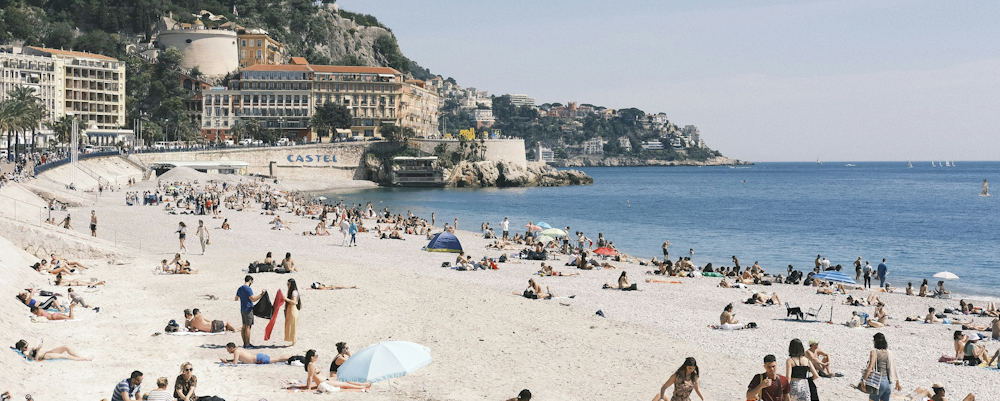
The lifestyle in Nice revolves around its enviable Mediterranean setting, where you’ll quickly adapt to the relaxed pace of daily life. If you’ve finally stepped away from the daily grind, you’ll find that the mild climate lets you enjoy outdoor living year-round – a key reason many expats choose this French city over Paris. The famous Promenade des Anglais invites leisurely strolls, while the outdoor café culture encourages long chats over coffee or apéritifs.
This seaside city grows more international each year with expanding nightlife and shopping options. The local markets, particularly the Cours Saleya flower market, bring colour and energy to everyday shopping. You’ll appreciate the focus on fresh, seasonal ingredients that shapes the local cuisine.
Shopping, Attractions and Lifestyle in Nice
Finding accommodation in Nice
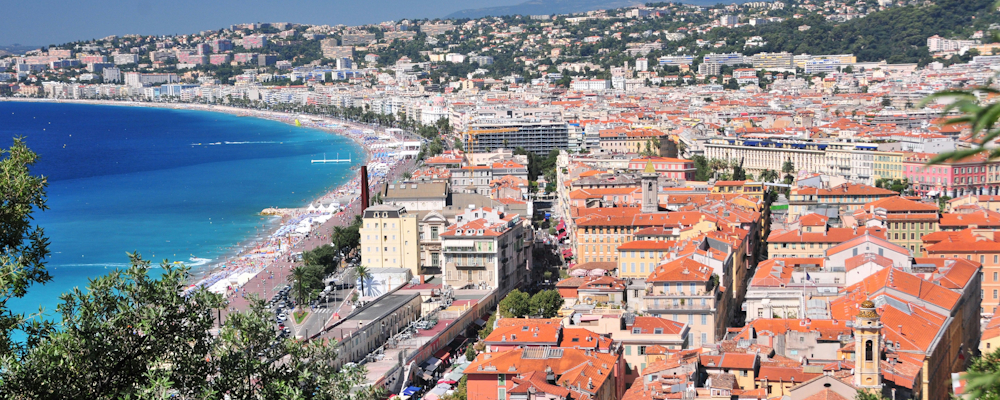
Finding accommodation in Nice calls for patience and quick decision-making. The rental market moves fast, especially in sought-after areas. Long-term rentals often require hefty paperwork and guarantors.
You’ll spot more housing options if you look beyond the touristy Promenade des Anglais and Old Town areas. Districts like Cimiez, Fabron, and Saint-Roch offer better value while still providing easy access to city amenities. Start your search well in advance, particularly if moving during peak tourist season.
The city caters more for tourists, so holiday rentals are easier to find than long-term housing. Flats get pricey in the centre of town, particularly near the port and the old city – prime areas thanks to their proximity to both the water and the city’s nightlife.
Cost of living in Nice
The cost of living in Nice shapes the demographic profile of expats, with most people moving to Nice being middle-aged or retired. Still, plenty of 20-somethings come to the city to study or work in the tourism industry.
Although cheaper than in Paris, the cost of living in this tourist town aligns with France’s high average living costs.
Living in Nice with children
Living in Nice with children comes with top-notch educational opportunities and quality of life. The region’s varied natural settings attract families from across the globe.
The ocean sits just 10 minutes from the city centre, and the mountains are a short bus ride away. Young and old alike can enjoy the stunning surroundings and outdoor activities. From mountain climbing to windsurfing, you’ll always find something to see and do year-round. The city’s calendar features events and festivals of all types, with many family-friendly activities throughout the year.
Finding a school in Nice
Finding a school in Nice gives you various options for your children. The public school system follows the French national curriculum, requiring French language proficiency. As a parent, you’ll find French schools offer high-quality education.
Several international schools serve English-speaking families, including the International School of Nice and Mougins School, slightly further afield. These schools offer curricula such as the International Baccalaureate, British, or American systems. Demand for places can be high, so plan ahead.
Getting around in Nice
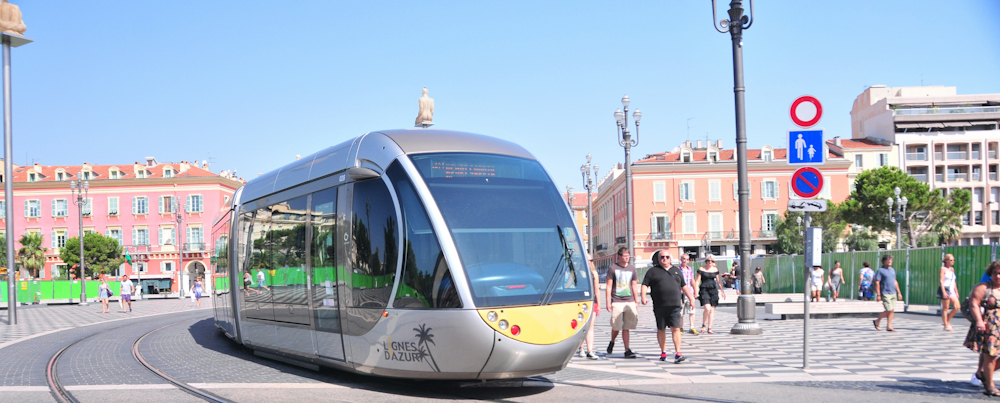
Getting around in Nice proves straightforward thanks to its superb public transport.
The tram network underwent significant updates in early 2025, with Line 2 now connecting Port Lympia to Airport Terminal 2, Line 3 linking Port Lympia to Saint-Isidore, and a new line connecting CADAM Centre Administratif to Airport Terminal 2. Services run approximately every seven to 10 minutes, making travel quick and convenient. In Nice, you won’t need a car to get around.
There are affordable daily and weekly passes that work across all public transport. For wandering the narrow streets in the Old Town, walking works best.
Cycling has become easier with the city’s bike-sharing schemes from Lime (green bikes) and Pony (blue bikes), which replaced the former Vélo Bleu system in 2024. Most places in central Nice lie within a 20-minute bike ride, making this a brilliant option for quick trips.
Climate and weather in Nice
The climate and weather in Nice are a top draw for expats. Summers feel warm and dry, with temperatures ranging between 60°F and 80°F (20°C to 26°C). Winters stay mostly sunny, with temperatures between 50°F and 60°F (10°C and 15°C) during the day and 40°F and 50°F (4°C and 10°C) at night. Rain falls mostly in winter but typically clears up just as suddenly as it starts.
Nice is a lovely city with an easygoing lifestyle. The only thing you might find tricky to adjust to is the two-hour pause for lunch when most shops and schools close. Don’t fret, though. Grab a salade niçoise and sit near the beach to enjoy the laid-back way of life that draws most people to Nice.
